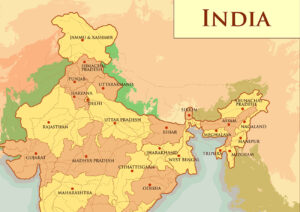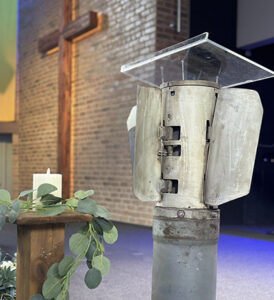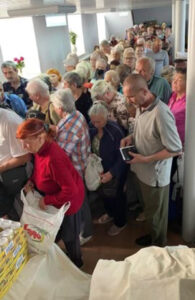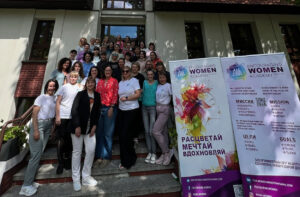Rioting mobs have destroyed at least 40 churches and forced thousands of Kuki, Zomi and other minority hill-dwelling tribes—most of them Christians—from their homes in the Manipur State of northeast India.
“This is ethnic cleansing, as well as religious persecution,” said Pastor Thong Kho Lun of Greater Houston Burmese Christian Fellowship, which has a longstanding ministry among refugees from Myanmar.
Thong has been in close contact with Christians in Manipur, including Thongkhosei Haokip, general secretary of the Kuki Baptist Convention, who asked Christians in America to pray.
Rioting began May 3
Looting, vandalism and arson began in Manipur on May 3. Riots broke out in response to protests that focused on calls for the government to grant Scheduled Tribe status to the Meitei people, a predominantly Hindu group who constitute the majority population in Manipur.
Members of scheduled tribes constitutionally are granted certain property protections and have access to political representation, educational benefits and affirmative action in employment.
Tensions between the majority Meitei people and minority tribes in Manipur over land ownership and affirmative action have existed for decades. However, Thong said, Christians in the region blame the latest surge of violence on a rising tide of militant Hindu nationalism.
“Mobs started burning churches, and then they went house to house,” Thong said, noting his sources said members of the mob secured weapons by raiding local police stations.
“The police cannot control the mobs,” he added.
Vee Tetseo, general secretary of the Asia Pacific Baptist Federation, provided a list of 16 named fatalities, 27 burned villages and at least 10 Evangelical Baptist churches destroyed, along with a field office and staff quarters in Meitram.
Some sources indicate up to 40 Kuki churches and 20 Meitei churches have been burned. Precise numbers are difficult to obtain because Internet connections have been disabled and travel is limited.
Christian Solidarity Worldwide reported the chief minister of Manipur, N Biren Singh, said on May 8 that 60 people were killed, 231 were injured and 1,700 homes had been burned down.
Some female students at a Christian boarding school reportedly were sexually assaulted.
The Times of Israel reported two synagogues were burned down and a Torah scroll was torched.
Reuters reported authorities evacuated about 20,000 people to camps guarded by the military.
Thong said his sources in Manipur said evacuees in the camps are subsisting primarily on bread and water, and even that is in short supply.
Asia Pacific Baptists call for peace
The Asia Pacific Baptist Federation issued a statement condemning “all forms of violence” and calling for “calm and the restoration of peace in Manipur.”
The federation—a regional affiliate of the Baptist World Alliance—includes 65 member conventions and unions in 22 countries and more than 40,000 churches.
“The reports of attacks on churches, sacred spaces, properties and individuals are deeply troubling and a violation of fundamental human rights,” the federation stated.
The statement underscored the group’s belief “that violence in any form is never a solution and only results in harm, loss of lives and destruction of property.”
“We urge all parties involved to engage in peaceful dialogue and find a nonviolent resolution to their differences,” the federation stated. “The right to freedom of religion and belief is a fundamental human right, and any attack on places of worship, sacred spaces and individuals practicing their faith is unacceptable. We call upon all parties to respect the sanctity of sacred spaces and properties.”
The federation urged authorities “to take swift action to ensure the safety and security of all individuals and all communities affected by this violence and to bring those instigating conflict and the perpetrators to justice.”
“We acknowledge the longstanding coexistence of different communities in Manipur and pray that the long-term grievances are suitably addressed in consultation with the people,” the statement of the federation continued.
“We assure the people of Manipur of our prayers and support towards building a peaceful and inclusive society where every individual can live without fear or discrimination.
“We call upon all citizens and groups of the society to engage in a reflective, constructive dialogue to find a peaceful resolution. Let us work together towards reconciliation and healing, and toward building a peaceful Manipur.”
In a May 9 statement, the Baptist World Alliance noted more than 750 homes of Baptist church members were destroyed, damaged, or ransacked and looted.
“We call upon all people of goodwill to pray for peace, lift their voice as ambassadors of reconciliation, and live with generosity on behalf of all impacted by this violence,” the BWA statement reads.
“To community and government leaders, we urge authorities to take immediate and appropriate actions to ensure the safety and security of all individuals, and to bring perpetrators of violence to justice. We call for the rebuilding of devastated communities, care for the displaced, and resolution of long-term grievances through constructive dialogue. We call for the protection of all places of worship, and a commitment to rebuild damaged places of worship, including the over twenty Baptist churches that have already been reported as destroyed.
“As we grieve for all who are suffering, we pray for the establishment of healing, just peace, human rights and religious freedom for all. We pledge to stand together with you in prayer and support in working together with you for a future where every diverse community lives in reconciliation and peace that results in flourishing freedom for everyone.”
EDITOR’S NOTE: This article originally was posted May 6. It was updated May 8 after the updated number of 40 destroyed churches was confirmed. According to a May 9 report by CSW, Chief Minister of Manipur N Biren Singh said on May 8 that 60 people were killed, 231 were injured and 1,700 homes had been burned down. The article also was updated to include the May 9 statement from the Baptist World Alliance.










